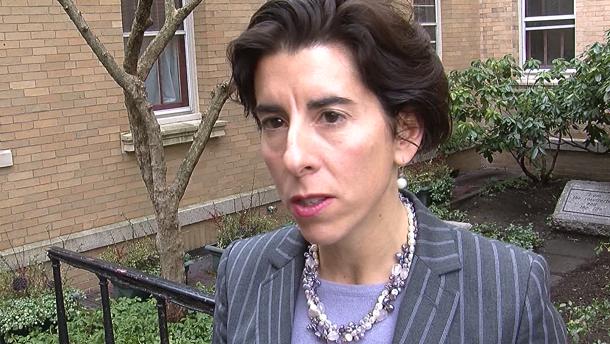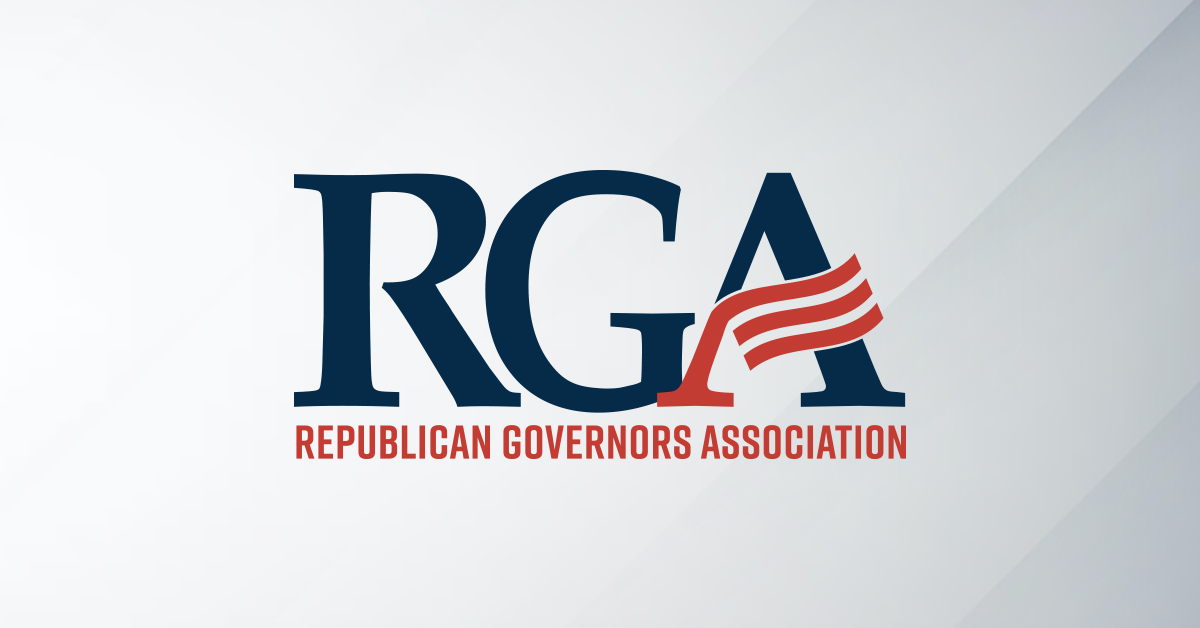
After she and her Democrat allies spent well over $2 million just to win a primary despite her status as an incumbent governor, Gina Raimondo finds herself facing another difficult election as polls show her locked in a dead heat against Republican Mayor Allan Fung. Last night, Raimondo admitted that she faces a “real race” against Fung in November.
Raimondo faces a “real race” as a direct result of anemic job growth, bottom ten business rankings, unemployment above the national average, systemic management failures, and numerous scandals on her watch. Instead of solving these issues, Raimondo has remained more concerned with protecting her image than looking for solutions. To make matters worse, Raimondo pledged to make her administration the most transparent in Rhode Island’s history when she started her term. Instead, she’s become the least transparent governor in America.
For nearly four years, Raimondo has built a record of failed promises and lackluster results for her state. Here are just a few examples of why Raimondo does not deserve another term as governor.
America’s Least Transparent Governor
Under Governor Raimondo, the state’s transparency website was ranked among the least user friendly in the nation, failing to make clear how it spends taxpayer dollars. The state’s transparency rating dropped from a B- to a D in 2018. “Rhode Island’s spending transparency website is among the least user-friendly in the country, keeping taxpayers in the dark about exactly where their money is going, a study released Wednesday found.. The state got a D grade from the Rhode Island Public Interest Research Group Education Fund and Frontier Group. The study used focus groups to study how well “ordinary Americans” could use government spending data websites like Rhode Island’s: www.transparency.ri.gov… ‘These sites can often be confusing for citizen users,’ Rachel J. Cross, an analyst with the Frontier Group and co-author of the report, said in an emailed statement. ‘Our focus groups put transparency websites to the test and found only a handful meet the expectations of a 21st century user.’… Rhode Island fell behind all other New England states, from Maine (D+) to Connecticut (A-)… The study, in its eighth year, used focus groups for the first time this year, causing a drop in many states’ rankings. Rhode Island got a B- last year.” (Source: Brian Amaral, “Rhode Island gets a D for spending transparency, study finds,” Providence Journal, April 25, 2018)
“Sluggish” Economic Growth
Providence Journal headline: “R.I. economic growth expected to be sluggish through 2020.” (Source: Kate Bramson, “RI economic growth expected to be sluggish through 2020,” Providence Journal, Jan. 17, 2017)
In January 2017, projections forecasted Rhode Island would continue its slow growth through 2020, at a slower pace than the nation. Unemployment was forecasted to be higher than that national average, and the state’s relatively stagnant population was expected to continue to be a source of concern for the local economy. “Rhode Island has yet to recover from the Great Recession and is forecast to continue its slow growth through 2020, at a slower pace than the nation, according to the latest economic outlook produced for the New England Economic Partnership… The state has recovered 93 percent of the 39,800 jobs wiped out by the Great Recession, which ended in 2010… Its unemployment rate – which has dropped ‘significantly’ from 9.1 percent in November 2013 to 5.3 percent in November 2016 – is forecast to decrease only slightly over the next five years. Forecast to be 5.0 percent by 2020, that would still be higher than the national unemployment rate, a distinction Rhode Island has maintained since July 2005… Furthermore, the state’s relatively stagnant population is expected to continue to be a source of concern for the local economy, writes Edinaldo Tebaldi, an associate economics professor at Bryant University and author of the Rhode Island forecast.” (Source: Kate Bramson, “RI economic growth expected to be sluggish through 2020,” Providence Journal, Jan. 17, 2017)
Bad For Business
In 2016, Rhode Island was CNBC’s “Bottom State for Business.” CNBC: In July 2016, CNBC ranked Rhode Island 50th in their “America’s Top States for Business 2016,” and noted, “This year’s Bottom State for Business, the Ocean State is overflowing with issues, including poor infrastructure and a weak economy.” (Source: America’s Top States for Business 2016, CNBC, July 12, 2016)
Child Welfare Scandal
In 2017, The Providence Journal reported on allegations of prostitution, sex-trafficking, and physical assaults in group homes under the auspices of DCYF – “Workers at state-regulated group homes took actions that left young people in their care hospitalized, endangered or exploited.” “Prostitution. Assaults arranged by a staff member. A clandestine overnight visit by a teenage girlfriend as the police searched for her. A paralyzing injury. Investigators say they’ve found all this and more connected to group homes – places where Rhode Island is supposed to provide refuge to young people it has removed from unfit living conditions… At least four times in the last five months, workers at state-regulated group homes took actions that left young people in their care hospitalized, endangered or exploited, a Providence Journal investigation has found… In two cases, group-home employees attempted to cover up slack supervision and management with forged log books or falsified statements, investigators reported… In one Pawtucket home, an employee used the agency van to help run a teenage sex-trafficking operation, prosecutors allege.” (Source: Tom Mooney and Jennifer Bogdan, “Danger in R.I. group homes,” The Providence Journal, Aug. 12, 2017)
State law required the DCYF director to hold a master’s degree in social work or “a closely related field” and have “demonstrated experience” in child welfare, children’s mental health or juvenile justice. Raimondo appointee Jamia McDonald had no social services background and by September 2015 it remained unclear who in DCYF leadership met the state’s qualification requirements. “For what it’s worth: state law requires the DCYF director to hold a master’s degree in social work or ‘a closely related field’ and have ‘demonstrated experience’ in child welfare, children’s mental health or juvenile justice. It remains unclear who, currently in leadership at the agency, meets those qualifications.” (Source: Jennifer Bogdan and Katherine Gregg, “Political scene: Overhaul ramps up at R.I.’s troubled child welfare agency,” The Providence Journal, Sept. 27, 2015)
Management Failures With State Social Services
The Raimondo administration ignored strongly worded warnings to postpone launching the Unified Health Infrastructure Project (UHIP). “The Raimondo administration ignored strongly worded warnings from the federal government that its new $364-million benefits system wasn’t ready to launch last month, and officials put federal funding at risk by going ahead anyway, Target 12 has learned… Letters sent by the U.S. Food and Nutrition Service (FNS), newly obtained by Target 12, show the agency’s Northeast regional administrator repeatedly urged Rhode Island leaders to postpone the looming Sept. 13 launch of the Unified Health Infrastructure Project (UHIP), the biggest IT project in state history. He was concerned that it would interfere with operations of the Supplemental Nutrition Assistance Program, commonly called food stamps, which his agency oversees.” (Source: Ted Nesi and Susan Campbell, “RI ignored federal warnings on launch of new $364M benefits system,” WPRI 12 Eyewitness News, Oct. 11, 2016)
UHIP’s cost through the close of the 2016-17 federal fiscal year, which ended Sept. 30, remains pegged at $342 million – From there it’s expected to hit $408 million in 2017-18 before reaching $492 million in 2018-19. “The projected cost of Rhode Island’s problem-plagued computer system for benefits has grown to nearly half a billion dollars, state officials said Friday… The state’s latest document updating the federal government puts the total cost of the Unified Health Infrastructure Project (UHIP) at $492 million through the 2018-19 federal fiscal year, with $108 million of that amount to be covered by state taxpayers and the rest by the feds. That is a significant increase from the $445 million estimate put forward in August… UHIP’s cost through the close of the 2016-17 federal fiscal year, which ended Sept. 30, remains pegged at $342 million. From there it’s expected to hit $408 million in 2017-18 before reaching $492 million in 2018-19.” (Source: Ted Nesi, “UHIPs projected cost balloons to $492 million,” WPRI 12 Eyewitness News, Dec. 1, 2017)
Campaign Finance Scheme
Patrick Ward served in the Raimondo administration while simultaneously chairing the Providence Democratic City Committee. During this time, the Democratic City Committee signed an “agreement of mutual support” with Gov. Raimondo’s re-election campaign that would encourage donors who have maxed out their legal contributions to her to give another $10,000 to the Providence Democratic City Committee for “party building.” The Providence Journal editorialized, “This essentially seems an end-run around campaign contribution limits, designed to limit the impact of big donors on government.” “Here’s the chain of events, as reported by Journal Political Writer Katherine Gregg: In February 2017, Patrick Ward was elected chairman of the Democratic City Committee… In June 2017, Mr. Ward received a $71,608-a-year job in the Raimondo administration as chief of program development for the Department of Human Services… About seven months later, the Democratic City Committee that he chaired signed an ‘agreement of mutual support’ with Ms. Raimondo’s reelection campaign… Under the deal that was signed, according to Kevin Olasanoye, the executive director of the state Democratic Party, Ms. Raimondo’s campaign will encourage donors who have maxed out with their legal contributions to her – $1,000 – to give another $10,000 to the Providence Democratic City Committee for ‘party building.’ … This essentially seems an end-run around campaign contribution limits, designed to limit the impact of big donors on government… In return, the committee will reportedly give Ms. Raimondo some control over hiring and the spending of the money… We do not know exactly what the deal says, however, because the governor and the Providence Democratic City Committee refuse to release it to the public… Mr. Ward has since resigned his committee chairmanship, but not for this stunt. He got into hot water for posting a meme on social media that some found disparaging to Italian-Americans.” (Source: Editorial, “Governor should release the deal,” The Providence Journal, Feb. 15, 2018)





See the latest videos from RGA
Watch our videosThe numbers say it all. New Hampshire can’t afford to become @maura_healey's Massachusetts.
NEW: Eleven economic development projects in Ohio are expected to create 1,025 new jobs statewide.
Details: https://bit.ly/3J1ZYDO
Follow RGA on Twitter
Follow RGA on Facebook